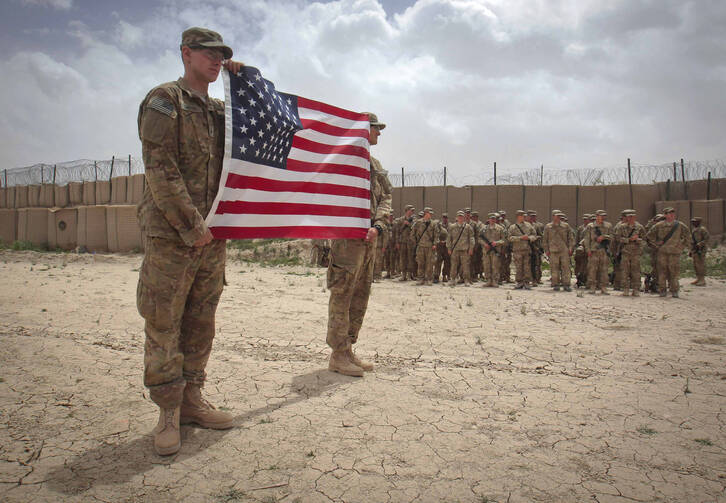Perhaps it’s the heat, or sun spots, or climate change, or more likely, terrorists have poisoned the water supply in Washington, D.C. and in certain newspaper offices, but some malevolent bug has bit the brains of politicians and pundits sounding off for the last week about Sgt. Bowe Bergdahl. The solider disappeared from his unit in Afghanistan, was captured by the Taliban, was held for five years and has now been returned in a prisoner exchange for five high-ranking Taliban members who have been locked in Guantanamo for over 10 years, probably tortured and described as some of the ‘worst of the worst,’—but have never been charged with crimes and tried in court.
The normal human reaction to the release of a military prisoner is first relief that he is still alive, and then joy—shared by all the people.
We don’t know Bowe Bergdahl well. We read that he comes from a small town in Idaho, from a conservative, religious family, with a father who grew a beard to identify with his suffering son and who learned the Afghan language so when the time came, he could speak to his son, who had been frozen out of English conversation for five years. Sgt. Bergdahl was a ballet dancer who loved to read poetry and commune with nature. In Afghanistan his fellow soldiers had mixed reactions to his personality. Sometimes he seemed enthusiastic about fighting, wanted action; at other times he was friendly with the Afghan people and expressed frustration with the war. In his platoon security was lax, so from time to time he took long walks off base.
Captured while wandering aimlessly, he tried to escape and was locked in a cage for a long period of time. After several years of trying to negotiate his release, on the basic grounds that America does not leave its troops behind, the Obama administration, with only a few months left before pulling out its main forces, was determined to get the young man free before either his health collapsed or a faction of Afghans killed him in an internal quarrel. They closed the deal by releasing five Afghans from Guantanamo.
To me the most surprising aspect of this whole saga is the refusal of some vociferous Americans to rejoice. Without evidence they labeled Bergdahl a traitor. Former U.S. Attorney General Michael Mukasey wants Obama impeached for negotiating the soldier’s release. This is the same Mukasey who defended waterboarding and other acts of torture during the Bush administration. The New York Daily News devoted five front pages and an editorial to demonizing Bergdahl and the five released prisoners.
I call your attention to three voices of reason:
Eugene Robinson in The Washington Post, June 6. His main points: 1. We leave no soldier behind on the battlefield. We are honor-bound to respect that commitment. So far Bergdahl has not been found guilty of anything. 2. Reports that six soldiers died looking for Bergdahl are denied by the secretary of defense. 3. The price of his freedom was not too high. Those men had been in our prison since 2002. If they appear on a battlefield they will become legitimate targets of attack. 4. Courtesy, but not law, required Obama to tell Congress ahead of time. 5. The Rose Garden ceremony failed as a public event.
E.J. Dionne in the June 10 Washington Post asks, “Why the rancor?” Commenting on the celebration of the Normandy invasion, he says: “It’s hard not to be cynical after the display of rancid partisanship that greeted the release of Sgt. Bowe Bergdahl after five years as a Taliban-held prisoner. The Greatest Generation would not have acted this way.” It was astounding how many Republicans raced to turn Obama’s bringing home a POW into an outrage. Several media outlets reminded us that Sen. John McCain four months ago supported the prisoner exchange and last week pulled a switcheroo. Retired General Stanley McChrystal told Dionne, the first responsibility is to the get back the prisoners or their remains. Our obligation as a nation at this time is to show unity, to work together. To do otherwise makes us look weak.
Finally, David Brooks in The New York Times argues that we have to “work hard to build our national solidarity.” It doesn’t matter, he says, whether or not Berghdahl deserted his post, or that the United States dealt with terrorists: the “president’s instincts were right.... It’s not about one person; it’s about the principle of all-for-one and one-for-all, which is the basis of citizenship.”








